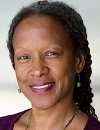 This week, another barrier to women’s equality fell. The tony Augusta National Golf Club, home to the Masters Tournament, extended membership to two women, former Secretary of State Condoleezza Rice and South Carolina financier Darla Moore. Club Chairman Billy Payne declared it “a joyous occasion,” yet I don’t feel the urge to jump for joy.
This week, another barrier to women’s equality fell. The tony Augusta National Golf Club, home to the Masters Tournament, extended membership to two women, former Secretary of State Condoleezza Rice and South Carolina financier Darla Moore. Club Chairman Billy Payne declared it “a joyous occasion,” yet I don’t feel the urge to jump for joy.
The 80-year-old club’s decision to admit two women, who already have class and status commensurate with its male members, is not at all like the civil rights victories we trumpet at the Civil Rights Memorial Center in Montgomery, Alabama. The people we herald are heroines and heroes focused on ensuring that the rights and privileges of citizenship were extended to all—equally.
The 1971 Joint Congressional Resolution declaring Women’s Equality Day, commemorating passage of the 19th Amendment that granted women the right to vote in 1920, spoke to that sense of inclusiveness. It was an amazingly honest critique on the status of women. In part, here’s what the declaration said:
WHEREAS, the women of the United States have been treated as second-class citizens and have not been entitled the full rights and privileges, public or private, legal or institutional, which are available to male citizens of the United States;
and
WHEREAS, the women of the United States have united to assure that these rights and privileges are available to all citizens equally regardless of sex; and
WHEREAS, the women of the United States have designated August 26, the anniversary date of the passage of the Nineteenth Amendment, as symbol of the continued fight for equal rights;
and
WHEREAS, the women of United States are to be commended and supported in their organizations and activities,
The 19th Amendment, like other federal civil rights guarantees, did not come easily and it didn’t come quickly. Women began to organize and peacefully agitate for the right to vote more than 70 years before the amendment was ratified. Change takes time.
Back in 2003, Martha Burk of the National Council of Women’s Organizations became the first woman to challenge Augusta National’s all-male membership. A decade later, she says, “We won.” I hope so.
We will celebrate Women’s Equality Day on Sunday, August 26, for the 41st time. But can we say that women have achieved equality? It appears that some have. Here is a list of firsts for women this year.
At the 2012 Olympic Summer Games:
- For the first time in history the U.S. women outnumbered the men. Women also out-medaled men.
- This was the first time we were able to see women box in competition. Claressa Shields, a 17-year-old from Flint, Mich. became our first gold medalist in the event.
The Arts:
- At the Sundance Film Festival, Ava DuVernay won Best Director for her drama, Middle of Nowhere, becoming the first African-American woman to do so.
Military:
- Maj. Gen. Marcia Anderson became the first African-American woman to earn the rank of major general in the U.S. Army’s 237-year history.
I’m grateful to the women who came before me, those in my lifetime who have been “first.” It can’t be easy, even when the barrier lifted is one I’m not likely to even approach. It’s not about me any more than membership at Augusta National was about golf. It’s about inclusion. There are girls all around the world excluded from pursuing their passions only because they are girls. Just as we are living lives a bit freer than the women who came before us—and because of them—we need to remember that these girls are counting on us to remove the barriers and pave the way so they can follow in our footsteps.
I remember how Tiger Woods’ entry into the elite limelight of accomplished golfers produced an excitement in black communities that continues to resonate. Kids in marginalized urban communities wanted to take up the sport because they saw someone who looked like them become successful at it.
Every first at every endeavor makes the second one possible and inevitable. And, that’s how change occurs for all. One “first” at a time.